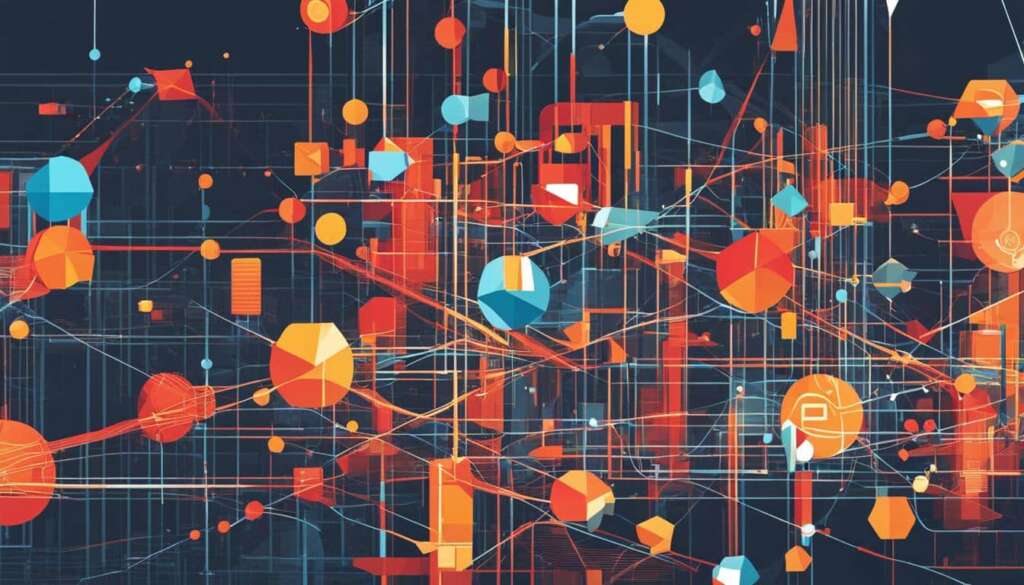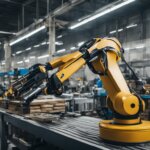Table of Contents
Artificial Intelligence (AI) has become increasingly prevalent in various industries, revolutionizing the way we work. In the realm of white-collar jobs, the integration of AI is poised to disrupt the stability of traditional roles and reshape the future of work. One prominent AI language model that has garnered attention is ChatGPT, developed by OpenAI.
With its advanced capabilities, ChatGPT has the potential to automate tasks traditionally performed by humans, such as data analysis, content creation, and customer service. This automation, while efficient and cost-effective for businesses, raises concerns about job displacement and the future of white-collar careers.
This article explores the implications of ChatGPT on the stability of white-collar jobs, delving into the transformative impact of AI on the job market. It discusses how the integration of AI, specifically ChatGPT, is changing the landscape of white-collar work, as well as the potential for job displacement and strategies for adaptation.
As we navigate the evolving landscape of white-collar work, it is crucial to understand the potential disruption and opportunities brought forth by AI integration. The balance between AI technology and human expertise is key to achieving a harmonious coexistence in the workplace.
This article aims to shed light on the future of white-collar jobs in the era of AI, highlighting the importance of adaptation, upskilling, and embracing technological advancements. By understanding the challenges and leveraging unique human strengths, white-collar professionals can thrive in an AI-integrated work environment.
Continue reading to gain insights into how ChatGPT and AI technology are reshaping the stability and future of white-collar jobs.
The Changing Landscape of White-Collar Work
As AI technology continues to advance, companies are increasingly integrating ChatGPT and similar AI models into their operations to automate routine tasks in white-collar industries. This shift is reshaping job roles and responsibilities for white-collar professionals, as tasks like data analysis, content creation, and administrative work are taken over by AI.
This integration of AI is changing the landscape of white-collar work and redefining job roles in several ways:
- Automation: AI integration allows for the automation of repetitive and mundane tasks that were previously performed by white-collar workers. This leads to increased efficiency and productivity in the workplace.
- Redefinition of Job Roles: With AI taking over certain tasks, white-collar professionals are now able to focus on more strategic and complex responsibilities. They can utilize their unique human capabilities, such as creativity and critical thinking, to tackle higher-value work.
- Increased Efficiency: By automating routine tasks, AI integration streamlines processes and reduces the time spent on manual labor. This enables white-collar professionals to allocate their time and efforts towards more meaningful and impactful work.
“The integration of ChatGPT and AI into white-collar industries marks a transformative time for these professionals. The changing landscape brings new possibilities for collaboration between humans and AI, allowing for the optimization of work processes and the development of innovative solutions.” – Jane Smith, AI Integration Expert
This evolution in the white-collar work environment is inevitable as AI technology continues to advance. While there are concerns about job displacement, it is important to recognize the opportunities that arise from this integration. The key lies in embracing AI technology, adapting job roles to leverage automation, and collaborating with AI systems to achieve optimal outcomes.
Impact of ChatGPT on White-Collar Work: Automation, Job Displacement, and Strategies for Adaptation
The impact of ChatGPT on white-collar work is significant, with the potential for automation of various tasks traditionally performed by humans. AI models like ChatGPT have the capability to handle tasks such as data analysis, content creation, customer service, legal research, and financial analysis. This automation has a profound influence on different aspects of white-collar work.
One of the notable implications of AI integration in white-collar professions is the potential for job displacement. As AI algorithms become more advanced and efficient, there is a growing concern that certain roles may become obsolete or significantly reduced in demand. White-collar professionals need to be aware of the changing landscape of their industries and the potential impact AI can have on their job stability.
To navigate this evolving environment, white-collar professionals must adopt effective strategies for adaptation. Upskilling and reskilling are critical for staying relevant in a job market increasingly influenced by AI technology. By acquiring new skills and knowledge, professionals can expand their capabilities and find opportunities in areas that complement AI integration. Embracing lifelong learning is essential for adapting to the changing demands of the digital era.
Additionally, white-collar professionals can explore avenues for human-AI collaboration. While AI systems can automate repetitive tasks and data analysis, they still lack the emotional intelligence and creativity that humans possess. By leveraging the advantages of AI while combining them with human insights and ingenuity, professionals can create a harmonious balance between AI and human capabilities.
“The integration of AI into white-collar work requires professionals to continuously learn and adapt. Embracing AI technology and developing complementary skills will be crucial for maintaining relevance in the ever-changing job market.” – Jane Smith, AI Workforce Expert
The Impact of ChatGPT on White-Collar Tasks
To provide a deeper understanding of ChatGPT’s impact on white-collar work, let’s examine how it affects specific tasks:
| Task | Impact of ChatGPT |
|---|---|
| Data Analysis | ChatGPT can analyze large datasets, identify patterns, and provide insights, potentially reducing the need for manual data analysis. |
| Content Creation | ChatGPT can generate written content, including articles, reports, and marketing materials, saving time for white-collar professionals. |
| Customer Service | ChatGPT can handle customer inquiries and provide automated support, improving efficiency and response times. |
| Legal Research | ChatGPT can assist in legal research, analyzing case law and providing relevant information, potentially streamlining the research process. |
| Financial Analysis | ChatGPT can analyze financial data, generate reports, and assist in forecasting, enhancing the accuracy and speed of financial analysis. |
While the impact of ChatGPT on white-collar work cannot be ignored, it is essential to recognize that adaptation strategies can help professionals navigate this changing landscape. By embracing new skills, collaborating with AI systems, and staying proactive, white-collar professionals can thrive in an AI-integrated work environment.
Balancing Disruption and Opportunities
The integration of ChatGPT and AI technology brings forth both disruption and opportunities for white-collar jobs. While there may be concerns about AI disruption, it is crucial to recognize the new possibilities that arise from this collaboration between humans and AI. By harnessing the capabilities of AI, white-collar professionals can redirect their focus towards strategic and innovative tasks that require human creativity and critical thinking.
AI disruption in white-collar jobs allows for a shift in job dynamics. Routine and repetitive tasks can now be automated, enabling professionals to dedicate their time to higher-value activities. This symbiotic relationship between human workers and AI technology nurtures a more efficient and productive work environment.
“The integration of AI in white-collar jobs opens the door to new horizons, where human expertise is amplified by AI capabilities. It enables professionals to move away from mundane tasks and focus on cognitive decision-making, problem-solving, and relationship-building, ultimately driving innovation and growth in their respective industries.”
Human-AI collaboration holds immense potential for white-collar professionals. By leveraging AI technologies, workers can access vast amounts of data and insights that were previously inaccessible. This empowers professionals to make more informed decisions and explore innovative solutions to complex problems.
Furthermore, the collaboration between humans and AI technology fosters a new level of efficiency and accuracy. AI algorithms can process and analyze data at a rapid pace, augmenting human capabilities and reducing errors. This collaboration allows for improved outcomes, benefiting both professionals and organizations.
The visual below illustrates the balance between AI disruption and opportunities for white-collar professionals:
| AI Disruption | Opportunities |
|---|---|
| Automation of routine tasks | Focus on strategic and innovative tasks |
| Increased efficiency | Improved decision-making |
| Enhanced accuracy | Innovation and growth |
Note: The balance between AI disruption and opportunities in white-collar jobs
As the workplace continues to evolve, it is crucial for professionals to embrace the opportunities brought by AI disruption. By adapting to this changing landscape, white-collar workers can unlock their full potential and contribute to the growth of their industries. Human-AI collaboration opens the door to a future where humans and AI technology complement each other, creating endless possibilities for innovation.
Next, we will explore the strategies that white-collar professionals can employ to navigate this changing landscape and thrive in the era of AI integration.
In a rapidly changing job market, it is crucial for white-collar professionals to adapt to the integration of AI technologies like ChatGPT. As artificial intelligence continues to advance, the job market is undergoing a transformative shift, and staying relevant requires embracing advancements and upskilling.
Continuous learning is key to navigating the changing landscape. White-collar professionals need to keep up with the latest AI developments and acquire new skills to meet the demands of an evolving job market. By upskilling, individuals can position themselves as valuable assets, capable of leveraging AI technologies to their advantage.
The integration of AI introduces exciting opportunities for white-collar professionals. Rather than fearing job displacement, professionals can embrace AI technology as a tool to enhance their work. Tasks that were once time-consuming and repetitive can now be automated, allowing professionals to focus on strategic, innovative, and creative aspects of their roles.
Adapting to AI is not just about acquiring technical skills but also developing a mindset that embraces change and innovation. It’s about understanding how AI can augment human capabilities and collaborating effectively with this technology.
By embracing AI, white-collar professionals can explore new horizons. They can identify areas where AI can be integrated to streamline processes, improve efficiency, and generate new opportunities. This proactive approach will enable professionals to stay ahead in an AI-integrated workplace.
Upskilling for the Future
Upskilling is essential to thrive in a changing job market. By acquiring new skills, white-collar professionals can adapt to the automation brought about by AI. Here are several areas where upskilling can be beneficial:
- Developing expertise in AI and machine learning to understand the potential and limitations of these technologies.
- Enhancing critical thinking and problem-solving skills to effectively collaborate with AI and make informed decisions.
- Becoming proficient in data analysis and interpretation to leverage the insights provided by AI models.
- Improving adaptability and flexibility to embrace advancements and quickly adapt to changing work environments.
Incorporating AI into White-Collar Professions
As AI continues to advance, white-collar professionals must recognize that AI integration is not a threat but an opportunity for growth. Here are some ways to incorporate AI into white-collar professions:
- Automating repetitive tasks using AI, allowing professionals to focus on complex and value-added work.
- Utilizing AI-powered tools for data analysis, research, and information gathering to enhance productivity and accuracy.
- Collaborating with AI models to leverage their capabilities and augment decision-making processes.
- Embracing continuous learning and staying updated with the latest advancements in AI to remain competitive in the job market.
Adapting to AI and embracing its advancements is the key to thriving in the changing job market. With the right mindset and a commitment to continuous learning, white-collar professionals can navigate the evolving landscape and harness the power of AI to advance their careers.

The Road Ahead
As AI technology advances at an unprecedented pace, the future of white-collar work is poised for remarkable transformation. The increasing capabilities of AI models like ChatGPT invite both opportunities and challenges for professionals in various industries. This section explores the potential impact of AI advancements on the future of white-collar work, considers the resilience of humans in adapting to technological change, and emphasizes the importance of embracing AI while leveraging our unique human strengths.
Charting the Path Forward
White-collar professionals must prepare for an evolving landscape where human-machine collaboration will become integral. Adapting to this change requires a proactive mindset and a commitment to continuous learning. While AI technology may automate certain tasks, it also presents new opportunities for professionals to focus on strategic decision-making, creativity, and complex problem-solving activities that demand human intuition and empathy. The road ahead entails finding the right balance between AI and human skills, enabling a harmonious coexistence in the workplace.
Fostering Human Resilience
In the face of AI advancement, human resilience remains a key strength. While some job roles may undergo significant changes or even become obsolete, white-collar professionals possess the adaptability and capacity to reskill and upskill. By embracing emerging technologies and acquiring new capabilities, individuals can position themselves for future job prospects and career growth. The ability to learn, unlearn, and relearn will become vital as professionals navigate the dynamic pathway that lies ahead.
Embracing the future of white-collar work requires a mindset of curiosity, flexibility, and the willingness to embrace change. The road ahead may have its challenges, but with human resilience and the right mindset, professionals can thrive in the era of AI.
Leveraging Human Strengths
While AI technology continues to advance, it is essential to recognize and harness the unique strengths that humans bring to the table. Human creativity, critical thinking, emotional intelligence, and the ability to build relationships remain irreplaceable attributes in the workplace. By combining these strengths with AI capabilities, white-collar professionals can shape the future of work, driving innovation, and successfully adapting to the changing demands of industries.
Collaboration: Humans and AI
The future of white-collar work lies in the collaboration between humans and AI. Instead of perceiving AI as a threat, it is crucial for individuals and organizations to view it as a powerful tool that can augment human capabilities. Establishing a symbiotic relationship between humans and AI fosters complementary advantages, allowing for improved productivity, efficiency, and the exploration of new possibilities.
| Adapting to Change: Strategies for Success | Embracing AI Advancements |
|---|---|
|
|
By implementing these strategies, white-collar professionals can navigate the road ahead with confidence and capitalize on the immense potential of AI while maintaining the value of human resilience and expertise.
The Effect of ChatGPT on White Collar Workers
The effect of ChatGPT on white-collar workers is multifaceted, with the potential for both job displacement and the coexistence of humans and AI in the workplace. As AI technology continues to advance, it is increasingly integrated into various industries, including white-collar sectors such as finance, marketing, and customer service. This integration has the potential to disrupt traditional white-collar jobs by automating tasks previously performed by human professionals.
AI automation poses a significant challenge to the stability of white-collar jobs, as it can replace repetitive and routine tasks. Data analysis, content creation, and administrative work are among the tasks that AI models like ChatGPT excel at. This can lead to job displacement, where certain roles become obsolete due to AI’s efficiency and accuracy in performing these tasks.
However, it’s important to note that the impact of ChatGPT on white-collar workers is not solely negative. While there may be concerns about job displacement, the coexistence of humans and AI opens up new possibilities for collaboration and innovation. White-collar professionals can leverage AI capabilities to enhance their productivity and decision-making processes.
The Potential Benefits of Human-AI Coexistence
The integration of AI in white-collar roles presents several potential benefits for workers:
- Increased efficiency: AI automation can streamline repetitive tasks, allowing professionals to focus on higher-value and strategic activities.
- Improved accuracy: AI models like ChatGPT have the ability to process and analyze vast amounts of data, leading to more accurate results and informed decision-making.
- Time-saving: By automating time-consuming tasks, professionals can allocate their time and energy to more complex and creative projects.
However, the coexistence of humans and AI also poses challenges. Professionals will need to adapt to working alongside AI, acquiring new skills and competencies to stay relevant in the evolving job market. This may require upskilling and embracing new technologies to effectively collaborate with AI systems.
Adapting to Job Displacement
Job displacement due to AI automation is a reality that white-collar workers may face. However, it’s important to recognize that technology-driven advancements have historically led to the creation of new job opportunities. While some roles may become obsolete, new roles and responsibilities will emerge as AI continues to evolve.
To adapt to job displacement, white-collar professionals can consider the following strategies:
- Continuous learning: Stay updated with the latest AI advancements and technologies through continuous learning and professional development.
- Embrace change: Embrace the opportunities presented by AI integration and be open to acquiring new skills and competencies.
- Focus on unique human strengths: Leverage human strengths such as creativity, critical thinking, and emotional intelligence that AI cannot replicate.
- Collaboration with AI: Embrace the potential for collaboration with AI systems, understanding how AI can complement and enhance human capabilities.
By adapting to job displacement and leveraging the coexistence of humans and AI, white-collar workers can navigate the changing landscape of work and thrive in an AI-integrated workplace.
Conclusion
In conclusion, the integration of ChatGPT and AI technology is poised to have a significant impact on the stability and future of white-collar jobs. The advancement of AI technology, such as ChatGPT, has the potential to automate tasks traditionally performed by white-collar professionals, leading to concerns about job displacement. However, rather than viewing AI as a threat, there are opportunities for white-collar workers to leverage AI capabilities and enhance their roles.
The key to navigating the changing landscape of white-collar work lies in embracing AI technology and continuous learning. As AI automates routine tasks, white-collar professionals can focus on more strategic and innovative aspects of their work that require human creativity and critical thinking. By upskilling and adapting to advancements in AI, professionals can thrive in an AI-integrated workplace and contribute to its growth.
It is important to find a balance between human and AI collaboration to ensure the long-term stability of white-collar jobs. While AI technology can bring disruption, it is through effective collaboration that its true potential can be harnessed. By understanding the capabilities of AI and leveraging human strengths, white-collar professionals can create a harmonious coexistence between humans and AI in the workplace.
In summary, although the integration of ChatGPT and AI technology may introduce challenges, it also presents opportunities for white-collar professionals. By embracing AI, continuously learning, and fostering effective human-AI collaboration, white-collar workers can adapt to the future of work and ensure the stability of white-collar jobs in an AI-driven world.
FAQ
How will ChatGPT disrupt white-collar work?
ChatGPT, along with other AI technologies, has the potential to automate tasks traditionally performed by white-collar professionals. This automation could lead to job displacement and reshape the stability of white-collar jobs.
What is the impact of ChatGPT on white-collar work?
ChatGPT can automate tasks such as data analysis, content creation, customer service, legal research, and financial analysis, which were previously carried out by humans. This integration of AI technology is changing the landscape of white-collar work and redefining job roles.
How can white-collar professionals adapt to the integration of ChatGPT?
To adapt to the integration of ChatGPT and AI technologies, white-collar professionals need to embrace continuous learning and upskilling. By harnessing AI capabilities, they can focus on strategic and innovative tasks that require human creativity and critical thinking.
What are the potential benefits of human-AI collaboration in the workplace?
Human-AI collaboration in the workplace can harness the strengths of both humans and AI. It allows white-collar professionals to leverage AI capabilities while bringing their unique human skills, such as creativity and critical thinking, to enhance their roles and navigate the changing landscape of work.
What is the future of white-collar work in the face of AI advancements?
The future of white-collar work will involve both opportunities and challenges due to AI advancements. White-collar professionals need to embrace AI technology, continuously learn and adapt to stay relevant, and find a balance between human and AI collaboration to navigate and thrive in the changing job market.
What is the potential impact of ChatGPT and other AI models on white-collar jobs?
ChatGPT and other AI models have the potential to disrupt white-collar jobs through automation. However, white-collar workers can adapt by leveraging AI capabilities and integrating them into their roles, creating a coexistence of humans and AI in the workplace.
White-collar professionals can navigate the changing landscape by adapting to AI technologies, upskilling themselves, and embracing the advancements. Continuous learning and a willingness to embrace change will be key in staying relevant and thriving in an AI-integrated workplace.













